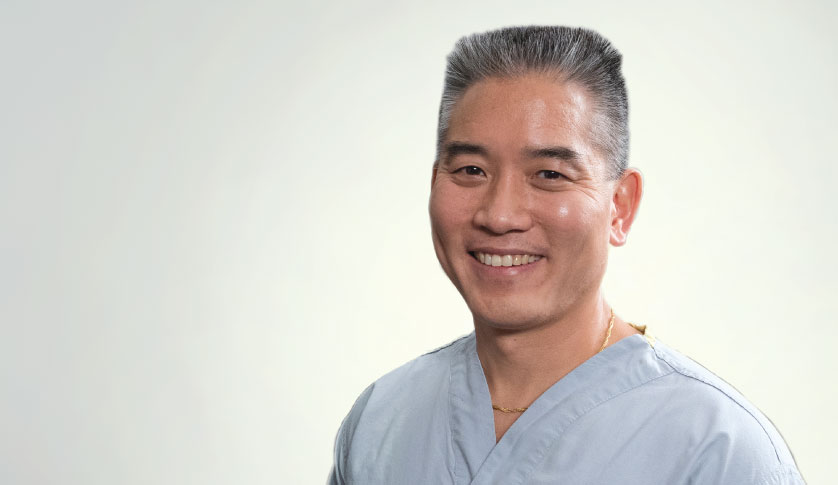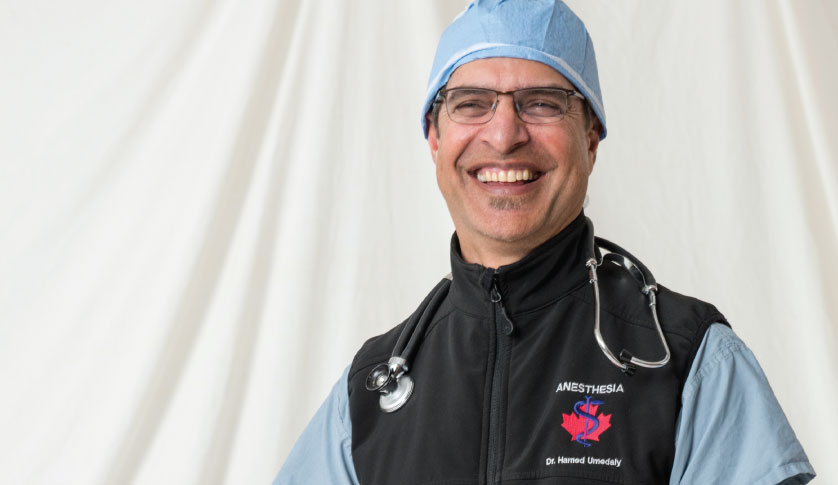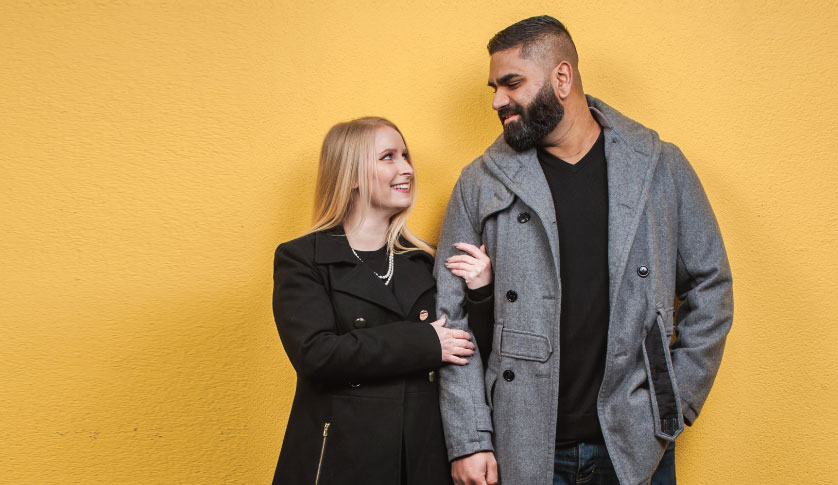Leaders in spinal care
At VGH Ritchie underwent several MRIs which showed the impact of his fall had shattered his vertebrae and bone fragments were embedded in his spinal cord. The damage was so severe Ritchie’s partner, Kristen, was told he may never walk again.
“When we first got to the hospital a member of the medical team sat us down and said, I just need to warn you, this is not looking good,” says Kristen.
Dr. Brian Kwon, Orthopaedic Spine Surgeon, assessed that Ritchie would need surgery to realign the spine and remove the bone fragments.
“It was very severe,” says Dr. Kwon. “With that kind of injury we were very concerned about the potential that there wouldn’t be any function from the waist down.”
Dr. Kwon led the complex five-hour surgery, methodically removing bone fragments and decompressing and realigning Ritchie’s spine. After the delicate and painstaking procedure, Ritchie’s spine was repaired with no lasting damage.


